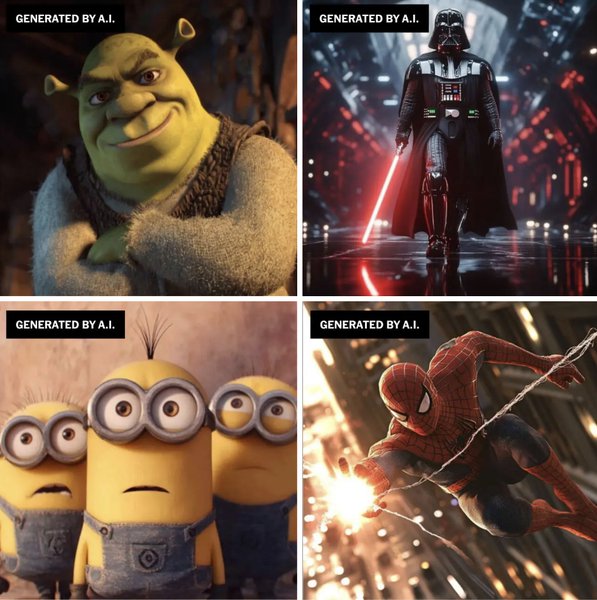
Midjourney’s A.I.-generated
images of Shrek, Darth Vader, Minions, and Spider-Man are the subject of the lawsuit.
Disney and Universal are suing Midjourney, an AI image generator that has tens of
millions of registered users, for unlicensed use of images from "Star Wars," "The Simpsons" and other movies and TV shows.
“The 110-page lawsuit contends that Midjourney ‘helped itself to countless copyrighted works to train its
software, which allows people to create images (and soon videos) that ‘blatantly incorporate and copy Disney’s and Universal’s famous
characters,’” according to The New York Times.
“‘Midjourney is the quintessential copyright free-rider and a bottomless pit of plagiarism,’ the companies said in the lawsuit, which was filed in U.S. District Court in Los
Angeles.”
advertisement
advertisement
It is the first time major Hollywood companies have sued over A.I.-generated images.
“The studios also say the San Francisco-based AI
company ignored their requests to stop infringing on their copyrighted works and to take technological measures to halt such image generation,” according to The Associated Press.
Midjourney didn’t
respond to requests for comment but its CEO, David Holz, addressed the lawsuit in a weekly conference call with users.
“I can’t really discuss any ongoing legal things
because the world isn’t cool like that, but I think Midjourney is going to be around for a very long time,” Holz said. “I think everybody wants us to be around.”
Midjourney made $300 million last year.
“The studios included numerous examples in the suit of AI-generated images of characters from 'Cars,' 'Toy Story,' 'Shrek,'
'The Avengers' and the minions from 'Despicable Me,'” according to CNBC. “The rise of AI
has raised the stakes in the media industry, and sparked concerns over how to protect content from illegal copyrighting. This is one of the most significant copyright legal battles to date involving
AI.
Disney and Universal are demanding a jury trial, arguing that the actions threaten to “upend the bedrock incentives of U.S. copyright law.”